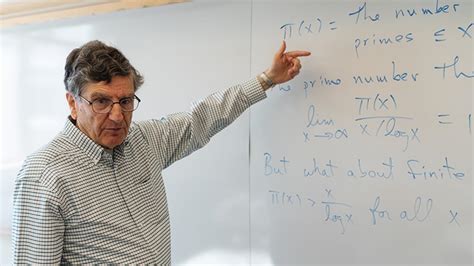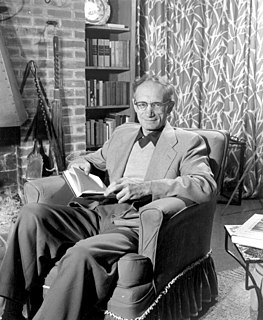A Quote by Carl Pomerance
Theorems are fun especially when you are the prover, but then the pleasure fades. What keeps us going are the unsolved problems.
Related Quotes
Modern problems proliferate and remain unsolved because we spend so much time trying to deal with societal and world problems without first dealing with family and community problems. If we organized for normal families and communities - if these two groups provided the functions they are designed for - world problems would diminish and fade out in two or three generations.
Innocence is the way you really give fun to others, create the fun part of it. The fun is created only through innocence and innocence is the only way you can really emit also the fun. Imagine this world without any fun, what would happen? But people are very much confused between fun and the pleasure. The pleasure is nice to begin with and horrible to end with. But fun is a treasure. Anything that is full of fun you remember all your life.
Whatever the Thinker thinks, the Prover will prove. And if the Thinker thinks passionately enough, the Prover will prove the thought so conclusively that you will never talk a person out of such a belief, even if it is something as remarkable as the notion that there is a gaseous vertebrate of astronomical heft ("GOD") who will spend all eternity torturing people who do not believe in his religion.
The book Dynamic Programming by Richard Bellman is an important, pioneering work in which a group of problems is collected together at the end of some chapters under the heading "Exercises and Research Problems," with extremely trivial questions appearing in the midst of deep, unsolved problems. It is rumored that someone once asked Dr. Bellman how to tell the exercises apart from the research problems, and he replied: "If you can solve it, it is an exercise; otherwise it's a research problem."
I'll work by myself for years and then I'll think it'll be fun to et one of my friends like Marshall Brickman or Doug McGrath into a room and not be alone for the writing of the thing; to have the pleasure of taking walks and get lunch together; its sort of a fun process and then I do it and then I get back on my own for a while until I feel the need to do it again.
Semiotics is really interested in the questions like, what keeps you watching something, what keeps you - you know, what keeps you listening to a story on the radio? Like, what keeps you turning the pages in a book? What's the pleasure of it that's moving you forward, that's pulling you in and grabbing you and pulling you forward?
It is a matter for considerable regret that Fermat, who cultivated the theory of numbers with so much success, did not leave us with the proofs of the theorems he discovered. In truth, Messrs Euler and Lagrange, who have not disdained this kind of research, have proved most of these theorems, and have even substituted extensive theories for the isolated propositions of Fermat. But there are several proofs which have resisted their efforts.
The child knows only that he engages in play because it is enjoyable. He isn't aware of his need to play--a need which has its source in the pressure of unsolved problems. Nor does he know that his pleasure in playing comes from a deep sense of well-being that is the direct result of feeling in control of things, in contrast to the rest of his life, which is managed by his parents or other adults.

































